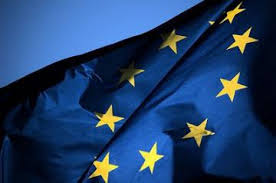GEO´™ PR Channel: EU – Euro area international trade in goods surplus
GEO´™ PR Channel: Euro area international trade in goods surplus €20.6 Bn
Release Date: 16 August 2019 – Brussels
 The first estimate for euro area [EA19] exports of goods to the rest of the world in June 2019 was €189.9 billion, a fall of 4.7% compared with June 2018 [€199.3Bn]. Imports from the rest of the world stood at €169.3Bn, a fall of 4.1% v. June 2018 [€176.6Bn]. As a result, the euro area recorded a €20.6Bn surplus in trade in goods with the rest of the world in June 2019, compared with +€22.6Bn in June 2018. Intra-euro area trade fell to €160.5Bn in June 2019, down 6.6% compared with June 2018.
The first estimate for euro area [EA19] exports of goods to the rest of the world in June 2019 was €189.9 billion, a fall of 4.7% compared with June 2018 [€199.3Bn]. Imports from the rest of the world stood at €169.3Bn, a fall of 4.1% v. June 2018 [€176.6Bn]. As a result, the euro area recorded a €20.6Bn surplus in trade in goods with the rest of the world in June 2019, compared with +€22.6Bn in June 2018. Intra-euro area trade fell to €160.5Bn in June 2019, down 6.6% compared with June 2018.
In January to June 2019, euro area exports of goods to the rest of the world rose to €1163.3Bn [an increase of 3.2% compared with January-June 2018], and imports rose to €1061.2Bn [an increase of 3.7% compared with January-June 2018]. As a result the euro area recorded a surplus of €102.2Bn, compared with +€103.6Bn in January-June 2018. Intra-euro area trade rose to €1001.4Bn in January-June 2019, up by 1.8% compared with January-June 2018.
European Union
The first estimate for extra-EU28exports of goods in June 2019 was €164.5 billion, down by 4.4% compared with June 2018 [€172.1Bn]. Imports from the rest of the world stood at €158.3Bn, down by 4.2% compared with June 2018 [€165.2Bn] As a result, the EU28 recorded a €6.1Bn surplus in trade in goods with the rest of the world in June 2019, compared with +€7Bn in June 2018. Intra-EU28 trade fell to €288.8Bn in June 2019, -6.4% compared with June 2018.
Geographical information
The euro area(EA19) includes Belgium, Germany, Estonia, Ireland, Greece, Spain, France, Italy, Cyprus, Latvia, Lithuania, Luxembourg, Malta, the Netherlands, Austria, Portugal, Slovenia, Slovakia and Finland.The European Union(EU28) includes Belgium, Bulgaria, Czechia, Denmark, Germany, Estonia, Ireland, Greece, Spain, France, Croatia, Italy, Cyprus, Latvia, Lithuania, Luxembourg, Hungary, Malta, the Netherlands, Austria, Poland, Portugal, Romania, Slovenia, Slovakia, Finland,Sweden and the United Kingdom.Methods and definitions.
Since the introduction of Intrastat for intra-EU trade on 1 January 1993, the value of intra-EU exports has been consistently higher than that of intra-EU imports. In theory, as exports are declared FOB and imports CIF, the value of corresponding imports should be slightly higher than that of exports. Eurostat uses intra-EU exports as the more reliable measure of total
intra-EU trade as, at aggregated levels, total intra-EU exports has better coverage than total intra-EU imports. Due to this divergence in intra-EU trade, and to the difficulties of interpreting figures in absolute terms at the level of individual Member States, trade balances for individual Member States must be interpreted with caution.
The same caution applies to the trade balance of the euro area, which includes some intra-EU trade.Dutch trade flows are over-estimated because of the so-called ‘Rotterdam effect’ (or quasi-transit trade): that is goods bound for other EU countries arrive in Dutch ports and, according to EU rules, are recorded as extra-EU imports by the Netherlands (the country where goods are released for free circulation). This in turn increases the intra-EU flows from the Netherlands to those Member States to which the goods are re-exported.
Although to a lesser extent, trade figures of other Member States like Belgium or Luxembourg may also be overestimated due to quasi-transit.National concepts may differ from the harmonised
methodology used by Eurostat, leading to differences between figures in this release and those published nationally, both for raw data and for seasonally adjusted series. Products are classified according to the Standard international trade classification (SITC), Revision 4.Revisions and timetable.
This News Release is based on data available on 12 August 2019. These are provisional figures based on information provided by Member States. They are subject to frequent revision for up to two years after the month in question.
End/.







